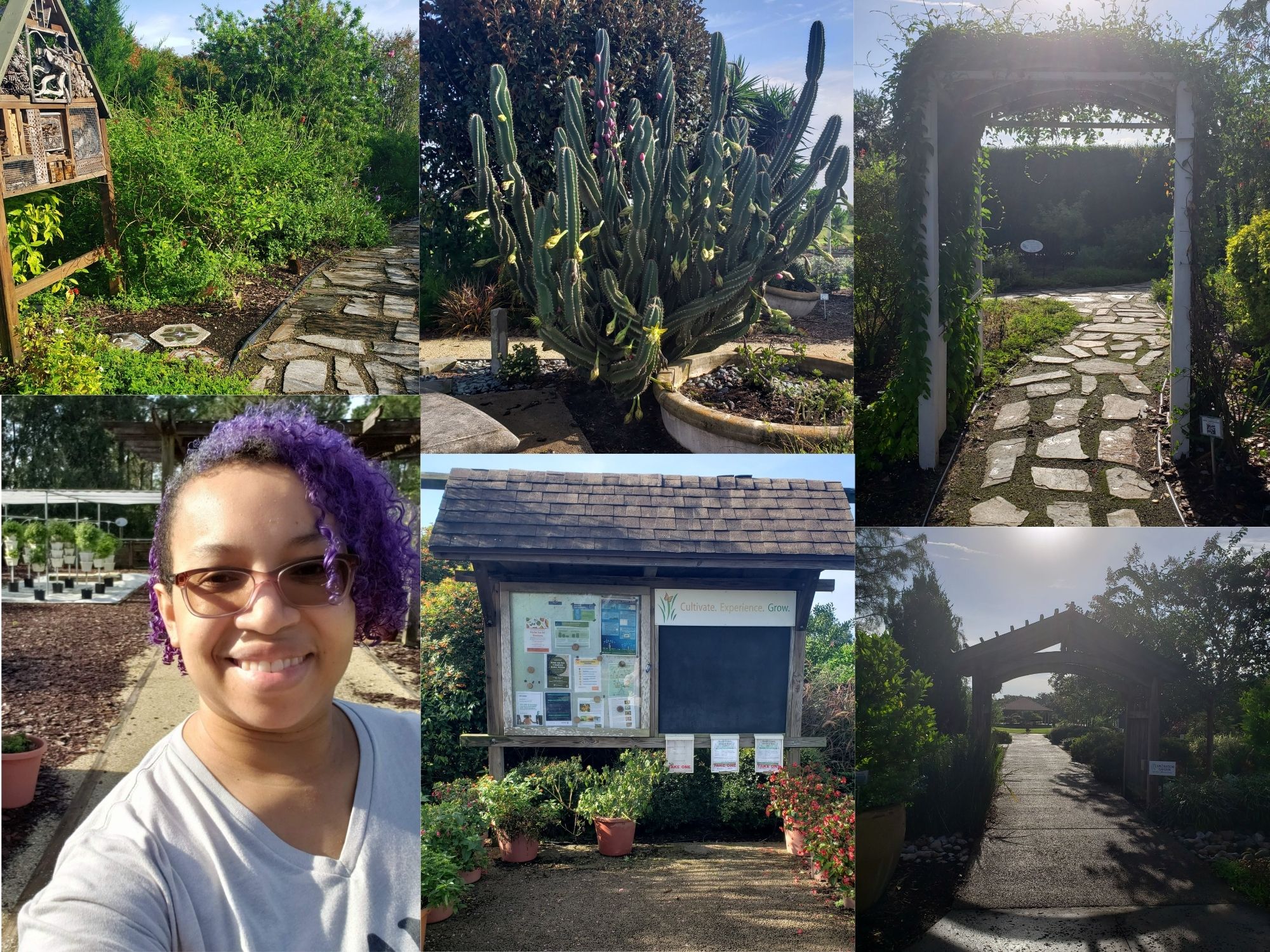
For Angie Dixon (AD), giving back is part of who she is. As a Master Gardener, she regularly volunteers at the University of Florida’s Institute of Food and Agricultural Sciences (IFAS) Extension office.
AC: Can you tell us a bit about the organization?
AD: The Extension Office is a division of the University of Florida funded to provide free resources and education to the local community. These services include classes on sustainable agriculture, energy conservation, food safety, child and family development, financial management, and more. At our physical location, anyone in the community can come to pick up resources or literature, attend a lecture or ask questions. As a volunteer master gardener, I assist in the Plant Clinic, where anyone can come by for help with landscape and gardening questions or issues.
AC: For how long have you been a volunteer at the extension office?
AD: I started volunteering there in 2018.
AC: That’s a long time. What motivates you to continue volunteering there?
AD: I go about once a month, and to me, it helps me stay connected to my community through a common interest. Despite the title of my position, I don’t consider myself to be an expert gardener. I have grown personally as a gardener at home but volunteering as a master gardener helps me to learn even more through helping others with their questions and issues. Most of what I discover in researching solutions would be things I wouldn’t otherwise have a chance to learn. So, it provides an endless opportunity for me to continue to enhance my skills.
AC: How was your experience while volunteering? What did you do?
AD: For a shift at the plant clinic, I pair up with a fellow volunteer to answer phone calls, reply to emails and help individuals who walk in with questions. The most common inquiries in my most recent volunteer shift were about leaves on trees turning unexpected colors and bushes with discolored fruit. We were able to diagnose possible causes and treatments for these issues.
Also, as a volunteer, I was able to observe and take home some cuttings from some edible and nonedible plants growing in the Demonstration Gardens. The demonstration gardens encompass approximately an acre that is designed as individual theme gardens. The University uses these gardens to test different plants, trees, and agriculture and see how they respond to central Florida soil. Some of my shifts as a master gardener involve maintaining and planting these demonstration gardens as they rotate them with the seasons.
AC: Can you tell us about a rewarding situation you’ve had while volunteering?
AD: Sometimes, the solution to a landscape issue can be costly or incredibly inconvenient for a homeowner. Tree issues are the worst, in my opinion. I know from personal experience that an issue resulting in a tree that has to be removed is one of the worst homeowner landscape inconveniences. A few times, I’ve been able to research solutions that will resolve the issue a tree has and save it. I breathe a sigh of relief when that happens.
AC: What would you say to encourage others to participate?
AD: Anyone interested in gardening, being outdoors, or just engaging more with their community qualifies for the volunteer master gardener position. The opportunities are wide-ranging in how one can participate once you train for the role. I enjoy talking to people and having my hands in the dirt, so I take shifts that mainly involve being in the clinic and demonstration gardens. There are also chances to lead guided tours of the gardens to the public, write articles for newsletters and media channels, work with schools and children, and pass out written materials during live lectures. It’s an excellent opportunity to give back to the community.
AC: Is there anything you’d like to tell our readers before we go?
AD: Yes! The volunteer master gardener opportunity is available in nearly every county across the country, so I encourage anyone interested to contact their local state university for more information if interested. Even if you’re not interested in volunteering, please feel free to reach out to see what resources your local extension office has to offer you as a community member. There’s everything from financial learning resources to health resources to housing resources to landscape resources. The volunteer program is only as fulfilling as the community usage. All participation in the program is appreciated. So, stop by your local office to take a sample of your drooping tomato plant, download an article on the best type of grass for your lawn or stop by for a lecture on resources to buy your first house.